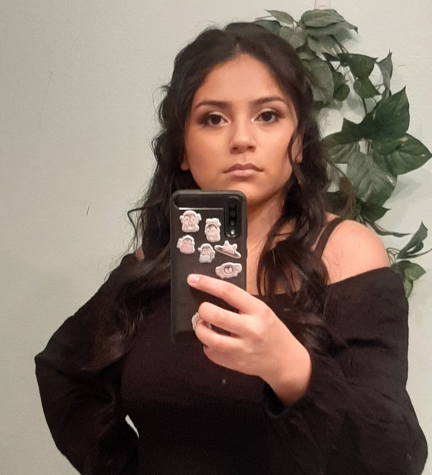The Native Voice Needs to be Heard
December 11, 2020
The land of the United States originally belonged to the Indigenous peoples. Yet, now they are a minority in their own ancestral land, often struggling to make their voices heard in the voting process.
The National Congress of American Indians states, “According to the 2010 Decennial Census, 0.9% of the U.S. population, or 2.9 million people, identified as American Indian or Alaska Native alone, while 1.7% of the U.S. population, or 5.2 million people, identified as American Indian or Alaska Native alone or in combination with another race.” This is relevant since the white population in 2010 was 63.8%, according to KFF. While the Native community in the United States is expected to rise, it’s apparent that they are minorities who typically feel ignored by society.
Even though Natives have been in this country longer than any other ethnic group, they were initially refused the right to vote. It was not until 1947 that, as The Library of Congress explains, “the Arizona Supreme Court struck down a provision of its state constitution that kept Indians from voting. Other states eventually followed suit. Even with the lawful right to vote in every state, Native Americans suffered from the same mechanisms and strategies, such as poll taxes, literacy tests, fraud, and intimidation, that kept African Americans from exercising that right.”
As Dana Hedgpeth from The Washington Post writes, “Even now, Native Americans face barriers to voting due to a host of issues, including not having the required voter identification, homelessness, lack of traditional mailing addresses, and unequal access to in-person voting, according to Jacqueline De León, a staff attorney for the Native American Rights Fund.” De León goes on to state that sometimes Native elders “tell younger people not to vote in U.S. elections.” She says, “It has to do with the humiliation they were subjected to and the idea that you’d have to give up your Indian culture to vote.” For example, because most Indigenous people live on reservations, they do not have customary addresses, which can significantly impact the voting process.
According to Alexia Fernández Campbell and Carrie Levine from The Center for Public Integrity, O.J. Semans, the co-executive director of Four Directions, a non-profit organization that advocates for voting rights stated, “If you took away their roads, gave them poverty, no transportation, and added in distance, the white vote would plummet.”
Even when given the right to vote, the aboriginal population has obstacles in their way. The land called “The United States of America” belongs to the Natives, and yet they could not and are still struggling to make their voices heard at the polling place. How is this fair? It’s not. More needs to be done to ensure that this particular ethnic group feels welcomed and heard in their own ancestral land.



